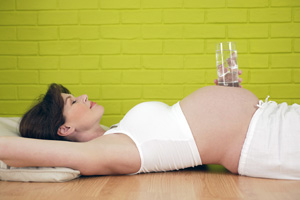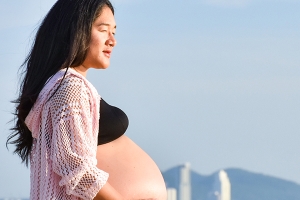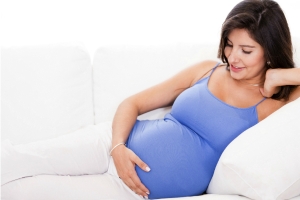
Water is the key to a healthy pregnancy
While many pregnant women remember to attend their doctor appointments and avoid too much junk food, they may be forgetting to drink enough water. Pregnancy significantly increases the importance of drinking plenty of water to maintain the health of expectant mothers and their babies.
“The most serious danger of dehydration in pregnancy is toxemia, which is life-threatening to both mother and child,” says Shoshanna Bennett, a psychologist specializing in pregnancy and postpartum issues, and the author of Beyond the Blues: A Guide to Understanding and Treating Prenatal and Postpartum Depression. Toxemia, or pregnancy-induced hypertension (PIH), is high blood pressure during pregnancy, which can lead to pre-eclampsia or eclampsia, a life-threatening complication.
“Dehydration also can cause anxiety and depression, which in pregnancy can affect both mother and child,” says Bennett. Drinking enough water during pregnancy will help prevent toxemia, as well as keep the mother’s physical and mental health stable.
“[A] pregnant woman has waste products from both herself and her baby being released into her system; pregnant women have a greater need for detoxification,” says Bennett, “This extra demand on her kidneys produces a greater need for water.”
A woman’s cardiovascular needs increase in pregnancy, which also requires pregnant women to drink plenty of water.
Certified Nurse-Midwife Laura O’Flaherty says, “We increase the volume of our blood by about a third to accommodate the greater cardiac output in pregnancy. Basically, we need more blood to serve mom and baby.”
Pregnant women who drink enough water during pregnancy will feel better overall with more energy and less headaches, O’Flaherty says. The amount of water needed for a healthy pregnancy varies from woman to woman. A good guide to know if you are drinking enough water is the appearance of your urine. “It should be pale yellow to clear throughout the day,” says O’Flaherty.
Another simple guideline about water intake during pregnancy is to drink the water amount equal to half your weight in ounces.
Never wait until you are thirsty to drink your water. Feeling thirsty means you’re already dehydrated.
“If a pregnant woman is perspiring from exercise or just from carrying the added weight, she should drink extra water to make up for the loss,” Bennett says. Experts like Bennett believe that no other beverage is an acceptable substitute for water. A water bottle should travel with a pregnant woman wherever she goes.
“Many of my clients will set a timer or a watch that beeps to remind them it’s time to drink water,” Bennett says.v
Kim Seidel is a freelance writer and mother of two daughters.









